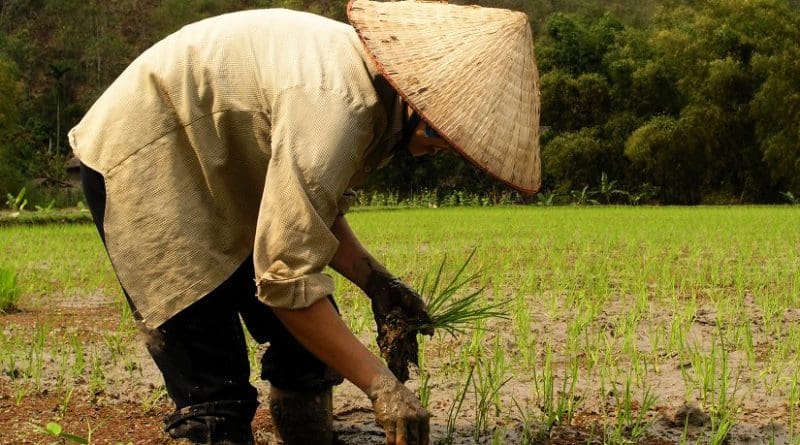Climate Change Hurts Crops Yet Boosts Community Spirit
The average level of trust among Vietnamese rural households tends to increase when changing temperatures damage rice yields, suggests a new study published in the De Gruyter journal Peace Economics, Peace Science and Public Policy.
Trust underlies social cohesion in countries across the world. But when times are tough, this trust can either rise or fall, with consequences for society as a whole.
To find out whether temperature variations have an impact on trust, Professor Adelaide Baronchelli of the University of Turin studied rural rice-growing communities in Vietnam, the fifth-highest rice-producing country in the world. There, rice accounts for about half of the total calorie intake per person which means that a bad rice-growing season can damage both people’s diets and their income.
Professor Baronchelli gathered recent records on temperature and rainfall changes during June, when the rice crop is most vulnerable to weather shocks. She then measured trust using records from the Vietnam Access to Resources Household Survey, which collects information on rural households across the country every two years. Between 2008 to 2014, the survey asked people if they agreed with phrases such as “In this commune one has to be careful, there are people you cannot trust.”
Using a regression model to measure the correlation between temperature and trust, she found that as the deviation in minimum temperature increased, trust levels in rural communities also increased. In general, the analysis showed that, for each 0.1°C deviation in the minimum temperature, there was a 1 to 3% increase in the likelihood of more trusting survey replies. This seems to suggest that social cohesion in these Vietnamese communes also increases in years when there is a poor rice crop.
Professor Baronchelli was initially expecting a different result. “In my mind, the decrease in rice should have disrupted the social capital of Vietnamese communities,” she said. However she changed her mind when looking at previous research which reaffirmed that harsh environmental conditions lead to increased trust: “When people have less rice to sell or to eat, they probably start to help each other more.”
She now hopes to focus on other countries to see if the result is similar, and also wants to collect more data on Vietnam to broaden the scale of her research.
“Understanding the precise mechanisms through which climate change impacts on trust is important because trust is one of the pillars of a functioning society and economy,” she explained.

